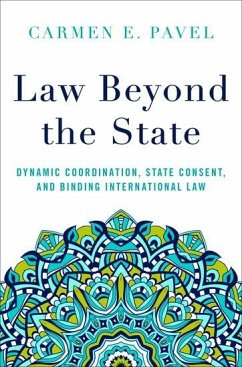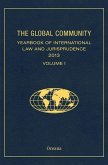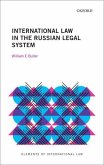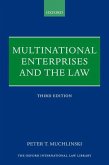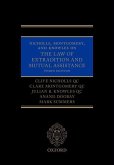The twenty-first century has revealed a deep-seated ambivalence toward the value and benefits of international law. This ambivalence is the result of states' two conflicting impulses: on the one hand, the recognition that their own interests and autonomy are better protected by entering agreements which set limits on how other states behave; on the other hand, the resolve to jealously guard their sovereign capacity to act unencumbered by constraints. The book argues that we should support international law as a system of rules and institutions which make a critical, irreplaceable, and defining contribution to an international order characterized by peace and justice.
Hinweis: Dieser Artikel kann nur an eine deutsche Lieferadresse ausgeliefert werden.
Hinweis: Dieser Artikel kann nur an eine deutsche Lieferadresse ausgeliefert werden.

